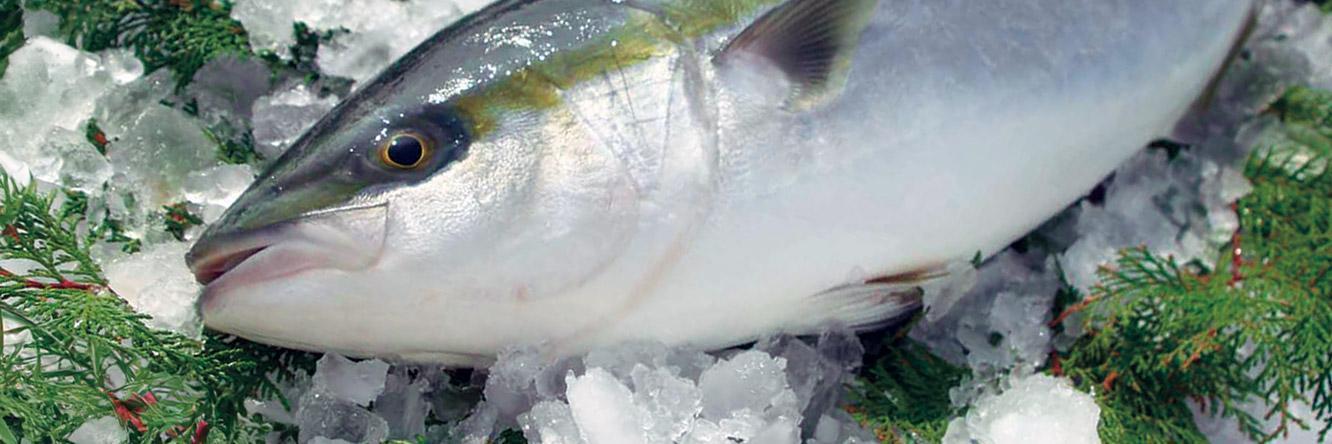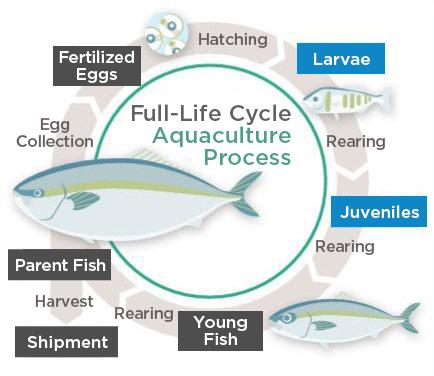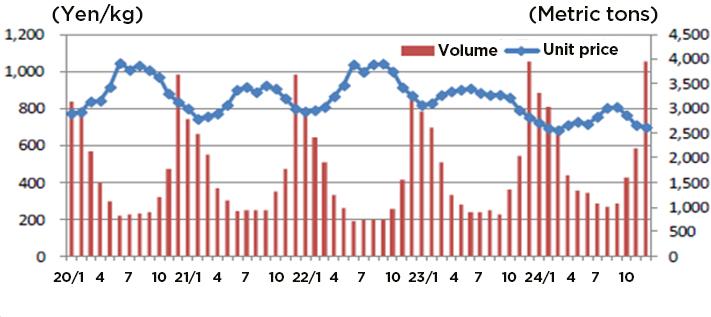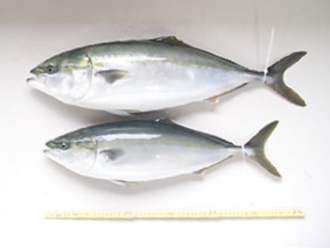
Technology for Rearing Artificially Hatched Juveniles
The Nissui Group is engaged in research on raising fish from artificially hatched juveniles--artificial juveniles--in addition to conventional aquaculture using wild-caught juveniles, aiming to reduce pressure on natural resources and ensure a stable market supply. While we farm various species, including salmon, Japanese amberjack, and Pacific bluefin tuna, of these, artificial juveniles production is implemented in our overseas salmon farming operations and domestic Japanese amberjack farming.

Figure 1: Full-life cycle aquaculture process for Japanese amberjack
Maturation management technology and Artificial juveniles Production Technology
Conventional Japanese amberjack aquaculture commonly uses juveniles caught from the East China Sea to the waters around Japan, with harvesting primarily in winter. Summer Japanese amberjack suffer the negative effects of spring maturation (development of ovaries and testes), leading to decreased appetite and weight loss by early summer due to maturation hormones. This prevents sufficient weight gain until autumn, resulting in poor fat content, meat quality, and flavor. While one-year-younger Japanese amberjack avoid maturation effects, their smaller size means they cannot accumulate sufficient fat, making them less than ideal for consumption.
To address these challenges, Nissui began considering the use of artificial juveniles through early egg collection with adjusted spawning timing in 2006. In 2011, we established advanced maturation management technology enabling egg collection from parent fish at precisely targeted times, along with technology to produce healthy artificial juveniles. This allowed us to avoid summer weight loss and produce Japanese amberjack suitable for summer shipping.

Figure 2: Changes in Japanese Amberjack Handling Volume by Season
Nissui's Proprietary Fast-Growing, Weight-Stable Japanese Amberjack
Our summer-harvested 'Kurose Buri' received significant positive feedback in the market, but customers sought even larger fish for better quality.However, simply advancing the egg collection timing to increase size resulted in summer weight loss due to maturation, compromising quality. In response, Nissui focused on accelerating growth through improved breeding programs and cultivation techniques. This resulted in the successful development of full-life cycle farmed Japanese amberjack that grow larger while showing delayed maturation, maintaining both size and quality without summer weight loss. By combining our advanced technologies in egg collection, seed production, and breeding/cultivation, we now offer premium-quality Japanese amberjack throughout the year. Building on these achievements, Kurose Suisan Co., Ltd., a Nissui Group company, transitioned to 100% artificial juveniles in 2022, establishing a stable and sustainable Japanese amberjack farming system that no longer requires the capture of wild-caught juveniles.

Figure 3: Farmed Japanese amberjack from artificial juveniles (top) / Farmed Japanese amberjack from wild-caught juveniles (bottom)
Related Links
- Year-Round Delicious Taste with Full-Life Cycle Farmed Kurose Buri (Japanese amberjack) | Part 1 | Establishing Japanese Amberjack Farming Independent of Wild-Caught Seeds
- Year-Round Delicious Taste with Full-Life Cycle Farmed Kurose Buri (Japanese amberjack) | Part 2 | The Secret Behind Its Fisherman-Approved Flavor
